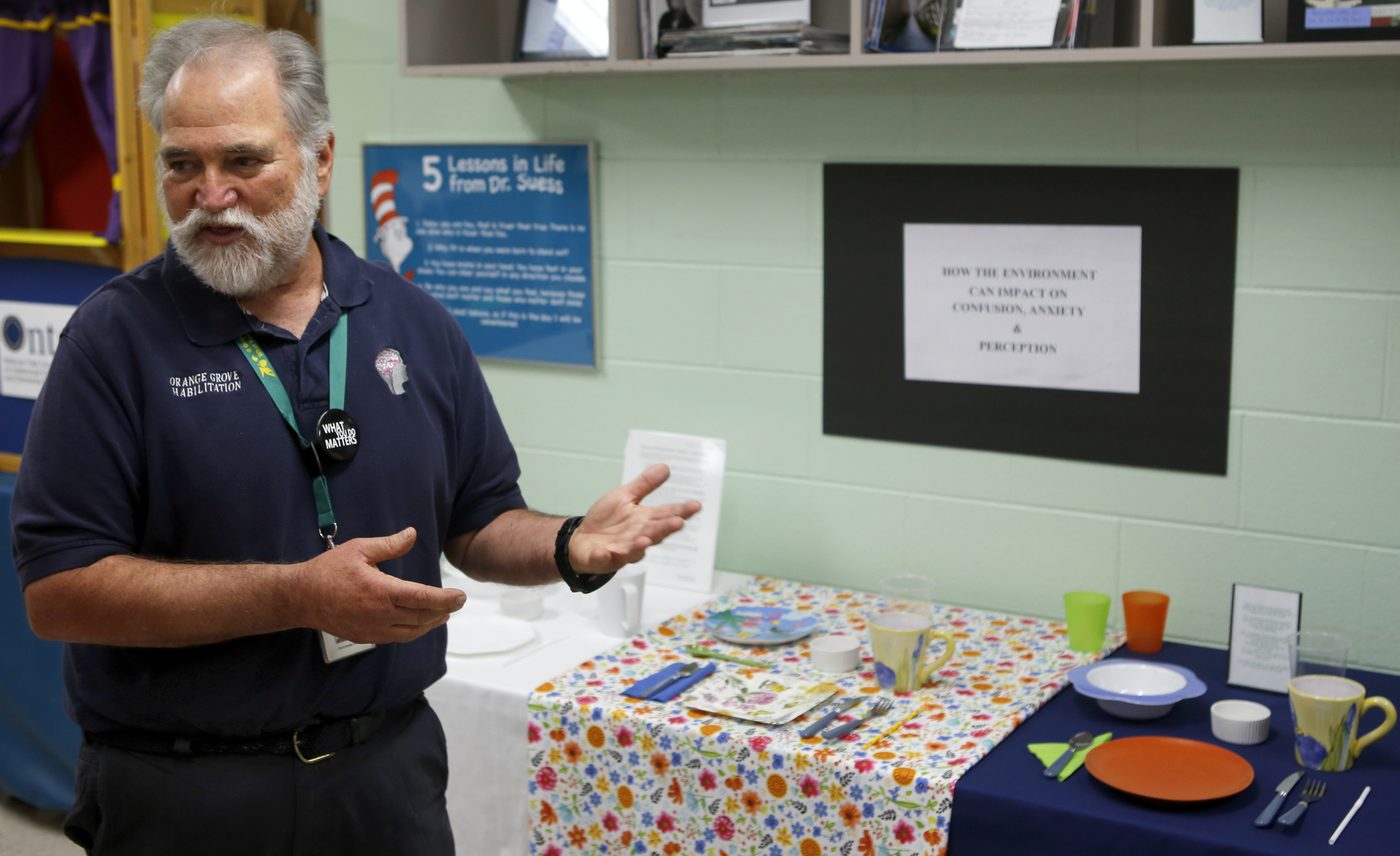An estimated 200 million people worldwide are living with an intellectual disability, and Dr. Rick Rader's work this week at the Special Olympics World Games in Abu Dhabi could positively impact all of them.
Rader, director of habilitation at Orange Grove, is an international expert in the field of developmental medicine. As the Special Olympics global adviser for inclusive health innovation, Rader is teaching ministers of health and leaders from the World Health Organization ways to improve health care for people with intellectual disabilities, a broad term that includes disorders such as Down syndrome, autism spectrum disorder, Fragile X syndrome and fetal alcohol syndrome.
On the air
Coverage of the Special Olympics World Games will begin with the Opening Ceremonies on Thursday at 11 a.m. EDT, live on ESPNews, and continuing through March 30.
"Sports is obviously first and foremost, and the competition is daunting but [Special Olympics] is also a health care organization and health advocacy organization," Rader said.
People with intellectual disabilities have higher health risks but are often unable to access basic medical care, because providers are either unwilling or lack the confidence and skills to treat this population. While access to care is a significant problem in the United States, the disparities are even greater for people living with disabilities in developing countries, Rader said.
About 20 years ago, Special Olympics began addressing the health care concerns of people with intellectual and developmental disabilities. Dr. Steve Perlman, a pediatric dentist from Boston, founded the Special Olympics health program in the 1990s at the request of Eunice Kennedy Shriver, who had struggled to find adequate dental care for her sister with disabilities, Rosemary Kennedy.
The program has evolved to provide over 2 million free health screenings and connect athletes to needed care in eight disciplines: vision, hearing, dentistry, podiatry, physical therapy, sports physical exams, nutrition, and mental health. Special Olympics also oversees the world's largest global dataset of health information for individuals with intellectual disabilities.
"The last frontier is that we're becoming an international social justice organization, to make sure that not only our folks with intellectual and developmental disabilities are put into mainstream medical care, but their rights are being acknowledged, accepted and recognized," Rader said.
Perlman said Rader is an integral part of Special Olympics' goal to train 10,000 public health workers from 20 developing countries to treat people with intellectual disabilities over the next three to five years.
"I would call him the No. 1 champion for health care for people with [intellectual disabilities] in the United States It's a gift that he has. Special Olympics needs him there to talk to these global leaders," Perlman said. "In my 40-year career, I've never met a more out-of-the-box thinker."
This year's World Games will host 7,500 athletes from 160 countries, including one athlete from Tennessee - swimmer Taegan Martin from Williamson County.
In addition to the inclusive health care movement, Rader said he's excited about the growth of unified sports, through which athletes with and without disabilities compete together.
"The best way to debunk myths about people is to be with people," he said. "Playing side by side, you get to know them as people, and that's the best way to pierce the veil."
Contact staff writer Elizabeth Fite at efite@timesfreepress.com or 423-757-6673.

